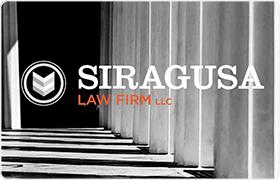Summit Adoption Lawyer, New Jersey
Sponsored Law Firm
-
 x
x

Click For More Info:
-
Siragusa Law Firm LLC
678 Route 202/206 Building 5, Suite 5 Bridgewater, NJ 08807» view mapDivorce & Family Law Creative Thinking. Exceptional Results.
At Siragusa Law Firm, we take our responsibility seriously. We are passionate about helping you, making sure to guide you through whatever legal matter you face.
908-218-1100
Laura Ann Steinberg
Alimony & Spousal Support, Child Support, Adoption, Children's Rights
Status: In Good Standing
Kimberly A Rudolph
Adoption, Employment, Immigration, International
Status: In Good Standing Licensed: 29 Years
Michael D. Mark
Child Support, Child Custody, Adoption, Divorce & Family Law
Status: In Good Standing
John E. Clancy
Collaborative Law, Family Law, Child Support, Adoption
Status: In Good Standing Licensed: 17 Years
Holly M. Friedland
Estate Planning, Domestic Violence & Neglect, Adoption, Divorce & Family Law
Status: In Good Standing
 Lynette Siragusa Bridgewater, NJ
Lynette Siragusa Bridgewater, NJ Practice AreasExpertise
Practice AreasExpertise
